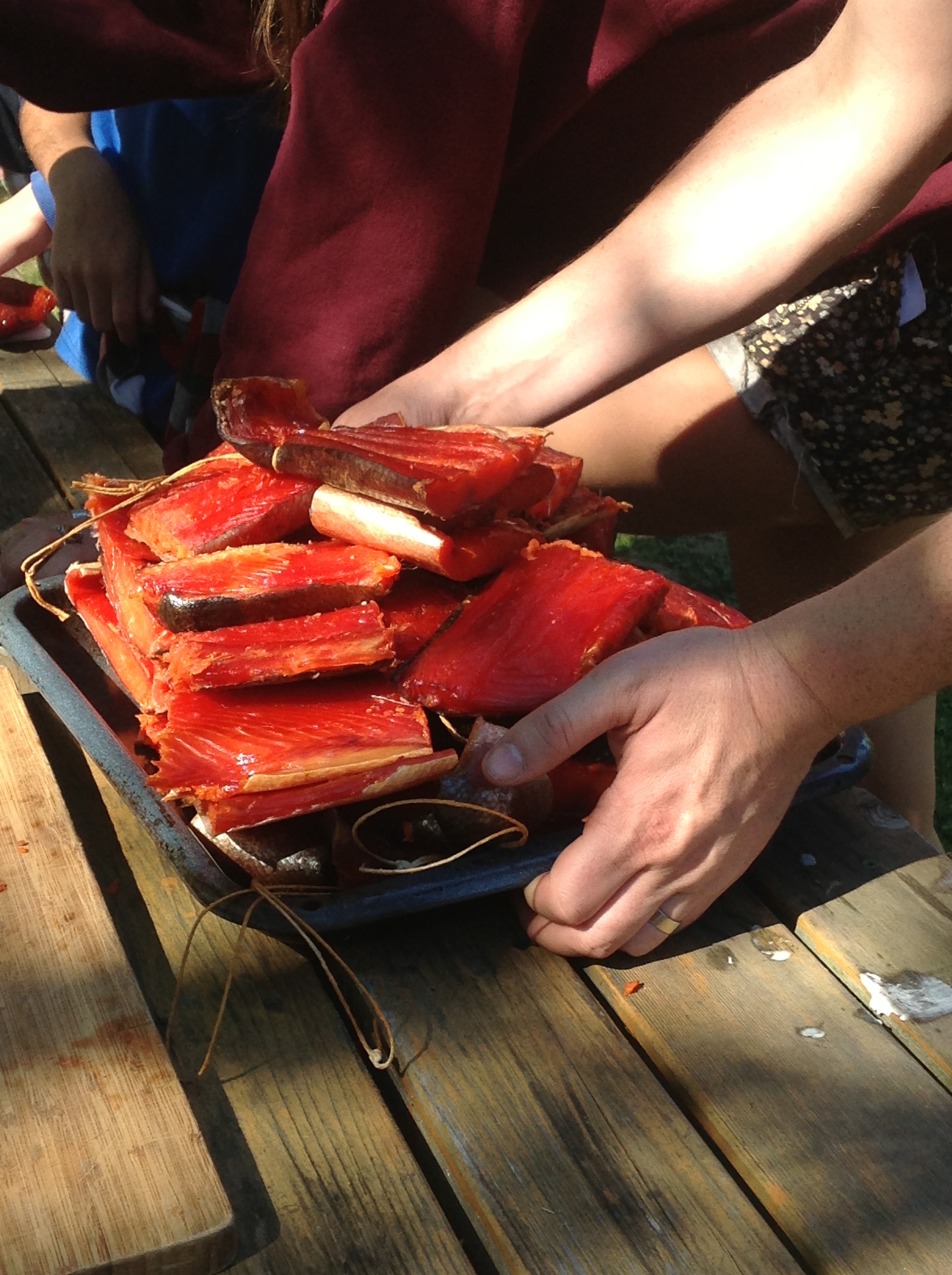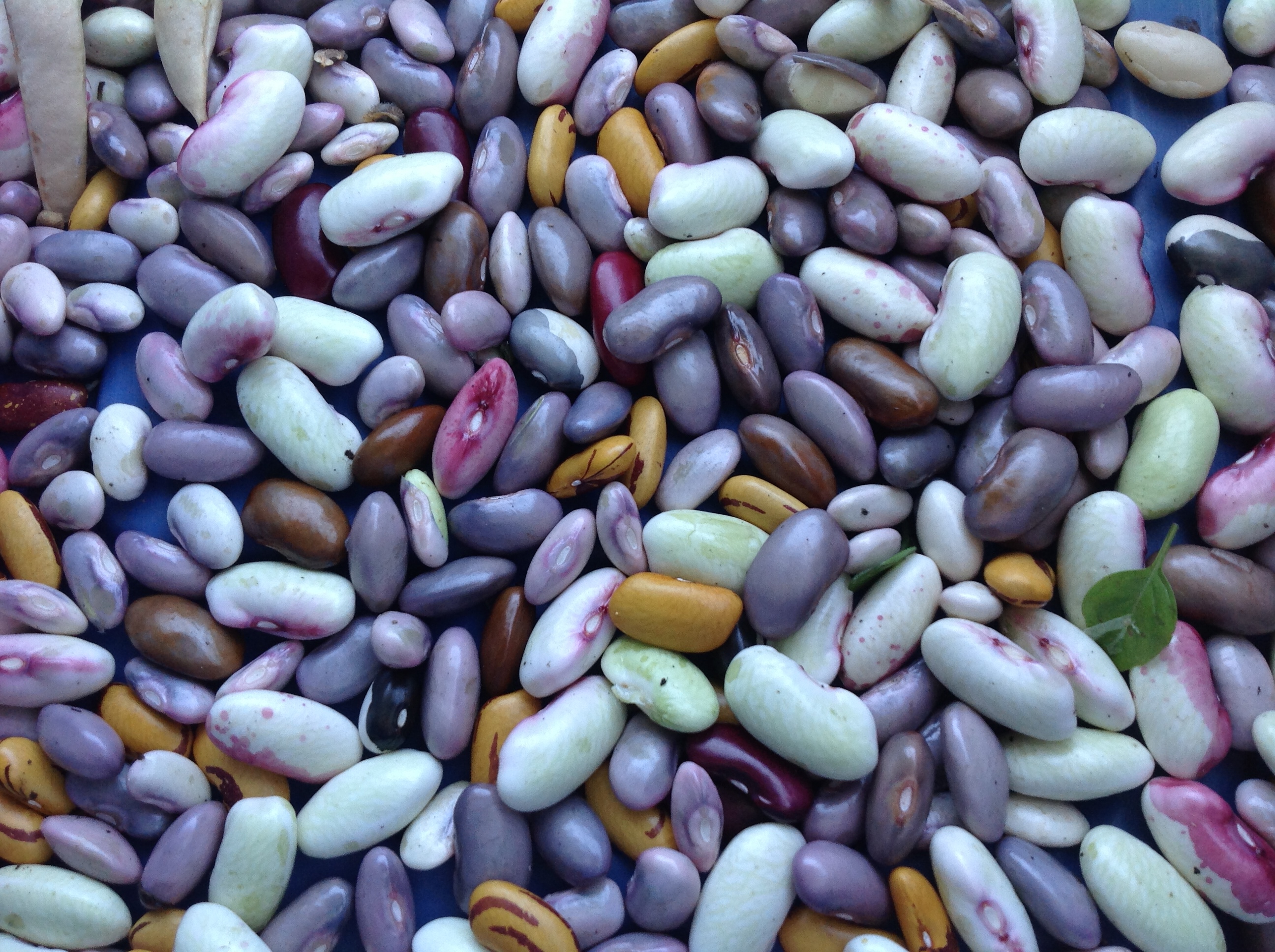Each 2014 UBC student Intern brought unique gifts and knowledge to the Indigenous Research Partnerships. Read about each of their experiences below.
Danette Jubinville – Indigenous Health Garden Intern
Erica Baker – Indigenous Health Garden Intern
Paulina Naylor – Feast Bowl Intern
Molly Billows – CRUW Research Intern
Erica Gibbons – Culturally Relevant Urban Wellness (CRUW) Research Intern
May – December 2014
 Erica has spent the last eight years on the traditional territory of the Musqueam people developing an understanding of the long-standing relationships that Indigenous peoples maintain with the land through traditional cultural practices and the passing down of invaluable traditional knowledge. In 2011, she completed her Bachelor of Arts with a double major in First Nations Studies and French at UBC, and is currently working towards completion of a Masters in Museum Education, also at UBC, where she examines on the representation of Indigenous peoples in museums, with a specific focus on the history of Aboriginal education in Canada. It is such a privilege to connect with Aboriginal youth through the land at the UBC Farm, and Erica is excited to share and reflect upon the experiences these youth enjoy during their time at CRUW.
Erica has spent the last eight years on the traditional territory of the Musqueam people developing an understanding of the long-standing relationships that Indigenous peoples maintain with the land through traditional cultural practices and the passing down of invaluable traditional knowledge. In 2011, she completed her Bachelor of Arts with a double major in First Nations Studies and French at UBC, and is currently working towards completion of a Masters in Museum Education, also at UBC, where she examines on the representation of Indigenous peoples in museums, with a specific focus on the history of Aboriginal education in Canada. It is such a privilege to connect with Aboriginal youth through the land at the UBC Farm, and Erica is excited to share and reflect upon the experiences these youth enjoy during their time at CRUW.
I can say without a doubt that my experience working as a research intern for the CRUW program at UBC Farm was, for many reasons, a life-changing experience. To begin, I had spent almost eight years in and around the vicinity of the farm, located on the traditional unceded territory of the Musqueam people, without ever sharing in a visit. I initially saw the opportunity to participate in CRUW as a chance to finally acquaint myself with the farm, and to develop my research skills. I quickly realized that visiting the farm was about more than observing and practicing agriculture – many diverse and interconnected communities exist within this place, and while each community is distinguished by its allotted space within the farm, they all share the common goal of raising our awareness of our relationship with the earth, and our responsibility to nurture and respect the land that sustains us.
From an academic perspective, after years of investigating, analyzing and hypothesizing about the most effective and appropriate research methodologies and best practices, it is safe to say there is no experience so educational as a truly hands-on approach. While the addition of a research program to the annual CRUW calendar is relatively new and continues to unfold, participating as a researcher within a framework prioritizing indigenous methodologies, community-based collaboration, and with the purpose of highlighting the thoughts and perspectives of the youth participants, emphasized the importance of forging relationships between various community-based partners to bring about a multifaceted, holistic, youth-centred program. Moreover, this experience highlighted that youth are sensitive and insightful; they are in tune with their surroundings and the ways that society influences their lives. Listening to the youth participants describing their visits to the farm as calming and reflective moments where they felt safe to explore their emotions, and to develop their understandings of their relationship with the earth, was a profoundly inspiring experience.
The intergenerational and intercultural aspects of CRUW are two distinguishing features that contribute greatly to the overall success of the program, and were also significant factors that impacted my own engagement throughout the season. The ability to connect and forge trusting and respectful relationships between youth, adults and elders was a wholly new experience. I so appreciated sharing my Saturdays with the youth, and witnessing the reflections shared amongst participants, volunteers and staff. Further, as these encounters occurred within a diverse and multicultural community context where all participants witnessed, and were encouraged to participate in various Aboriginal cultural practices and other land-based initiatives, we were offered the opportunity to deepen our awareness of the interconnectedness of all peoples, and of the importance of communication and observation
As much as I developed my skills as a researcher, I have also sincerely come away from this experience with a heightened awareness of the importance of listening to one another, to the earth, and to the power of nature’s energy as it travels through the bodies of those who contribute to the health and wellness of the land and the people.
– Erica Gibbons


